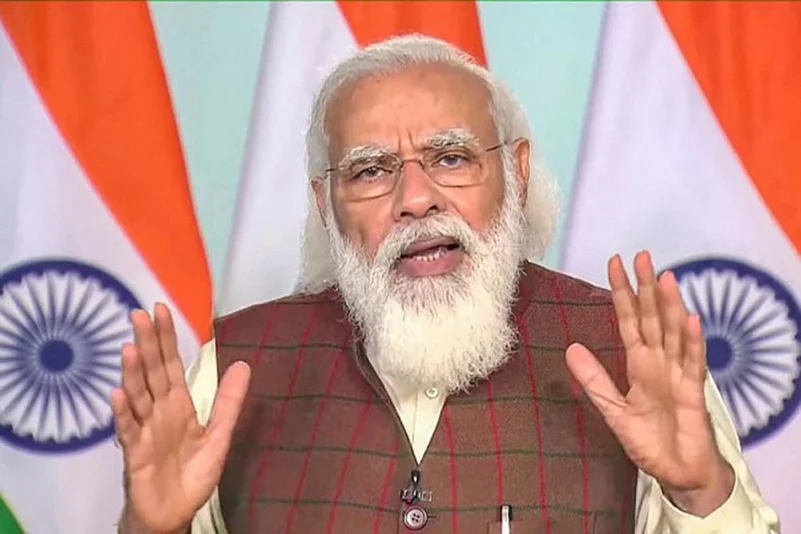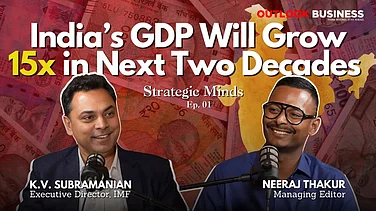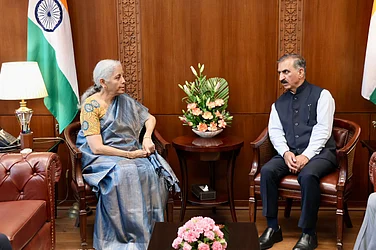Should India be celebrating the milestone of administering 1 billion doses of the Covid vaccine? While the Narendra Modi led-government is celebrating the occasion, the opposition is calling it the government’s failure as just about 21 per cent of India’s total population has received both doses of the Covid vaccine.
The naysayers are comparing India with countries like Chile (76 per cent), UAE (86 per cent) and Portugal (87 per cent) among others, according to data available collected by Our world In Data.
China, which is known not to share its data with world agencies clearly, has reportedly administered more than 2 billion doses of the vaccine to its people, and the world is forced to assume that they would have achieved at least 50 per cent inoculation of its adult population.
How should we rate India, then? Before making any judgment, it’s important to understand the importance of absolute numbers. Those who hail countries like Chile for vaccinating 76 per cent of its total adult population with both doses of the vaccine, do not reveal that the South American nation has a population of just 1.93 crore. The UAE falls short of even the 1 crore mark with a population of just about 99 lakh, while Portugal is home to just about 1 crore people.
Another thing that needs to be looked into before undermining the achievement of the NDA government is the per capita income of India ($1900), which is just about a fifth of China ($10,500) and one-eleventh of Portugal ($22,439) according to the World Bank.
Despite having the second-largest population in the world, and having considerably fewer resources at its disposal, the Indian government has managed to administer one billion vaccines in 10 months.
Interestingly, what the opposition is doing now is not new. The BJP used the same trick before the 2014 general elections and succeeded at coming up with its own narrative.
A Leaf From BJP’s Book
While it’s true that the current government is being unfairly criticised over the rate of vaccination if seen against the backdrop of the total population and available resources, the opposition is only using an old trick in this political game mastered by the BJP.
In the run up to the 2014 general elections and even after that, the BJP accused successive Congress governments of not doing enough to eradicate poverty from India in its 70-year rule. It also accused the previous Congress government of not providing the people of India basic services such as electricity or bank accounts.
The Congress failed to counter this narrative in the eyes of the public, and it was among the reasons that led to the party losing two general elections, consecutively.
However, the BJP’s political pitch hid some crucial numbers that may show congress’ tenure in a better light.
For example, the number of villages that were electrified by Congress before the BJP claimed to have achieved 100 per cent electrification in the country.
At the time of Independence, just about 1,500 Indian villages had electricity. The movement to electrify every village of India picked up pace only during the 11th five-year plan (2007-12) when the UPA government targeted 75,000 MW power generation capacity. Between 2005 and 2014, the Congress-led UPA government connected around 1,082,280 villages to the electricity grid, providing connections to around 20 million households.
But, it was the Modi government that staked a claim to achieving the target of 100 per cent electrification in the country in 2018. What the BJP government did not tell anyone was the fact that in its four-year tenure, it had only electrified 18,452 villages before claiming the grand achievement as its own.
In many other instances, political parties in India undermine their opponent’s achievements, while laying claim to milestones where the incumbent government’s contribution is limited to making the public announcement.
What often gets missed in this game of politics is the real assessment of the scale of development under a particular government. More often than not, it also puts the political parties under unnecessary pressure to make announcements that are not in sync with the ground reality. In the past few years, the opposition has focused only on criticising the incumbent government even if it meant jeopardising national interest. And we can’t blame just the current opposition for this conundrum.
















.png?w=200&auto=format%2Ccompress&fit=max)




